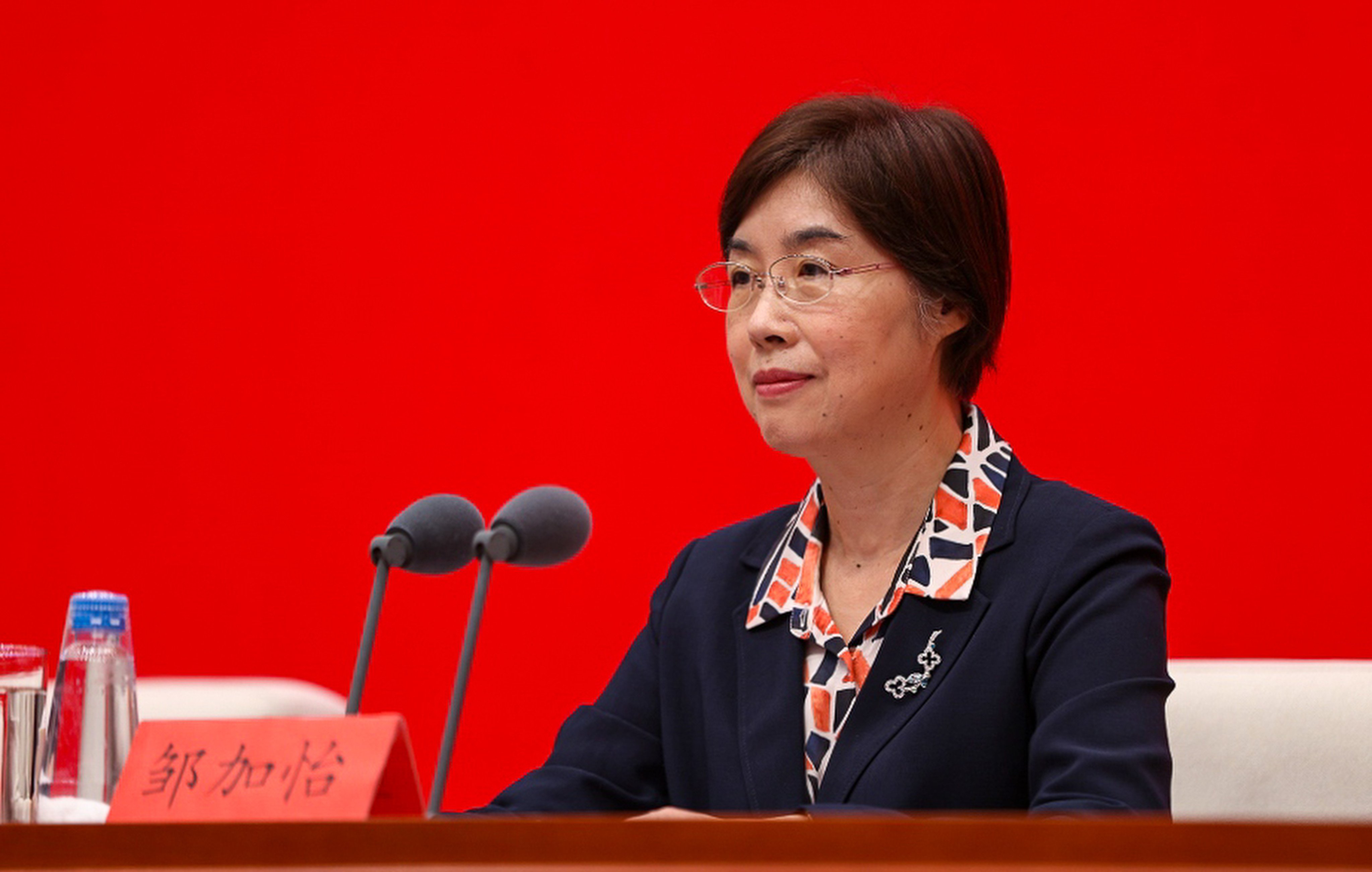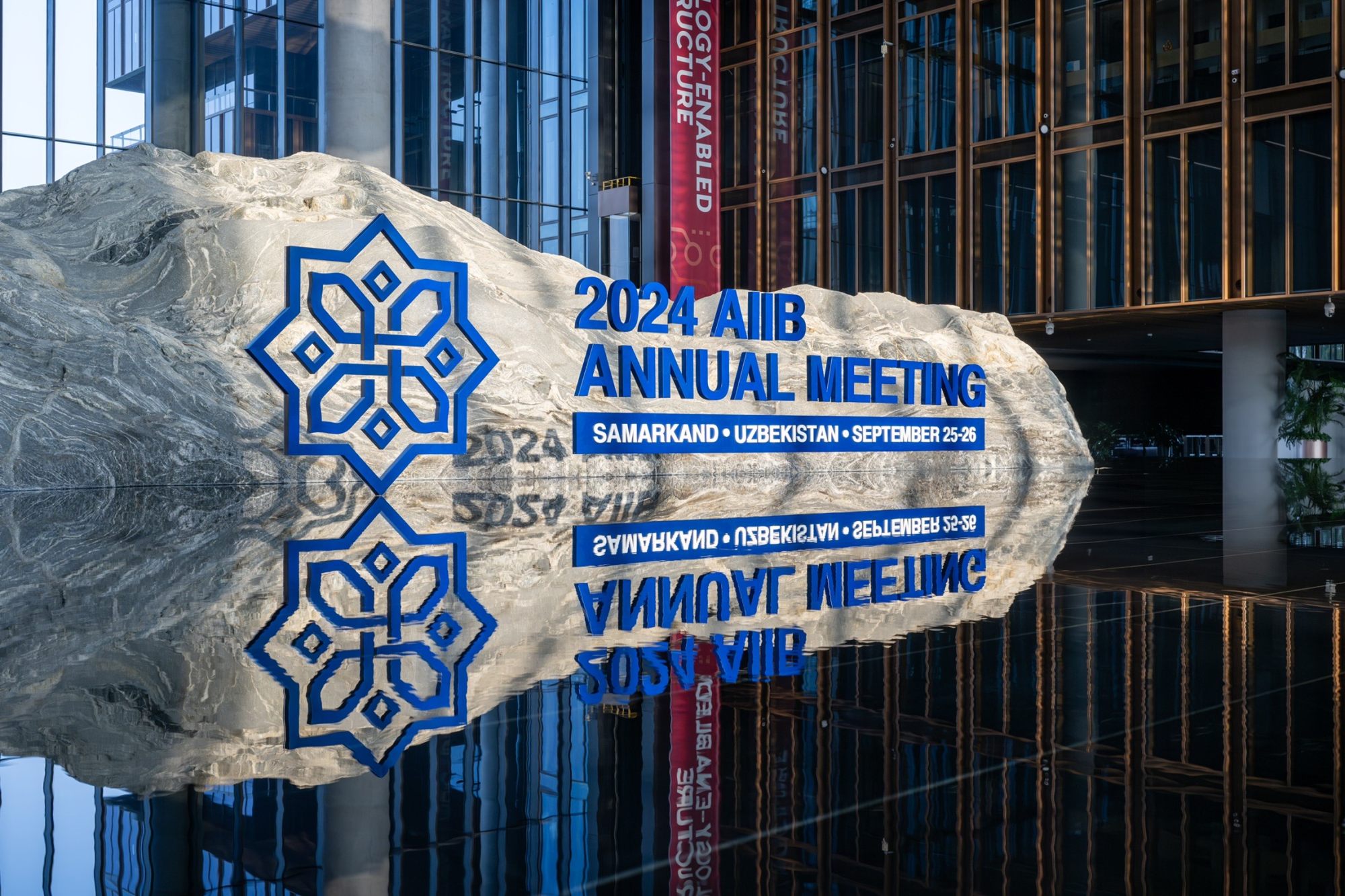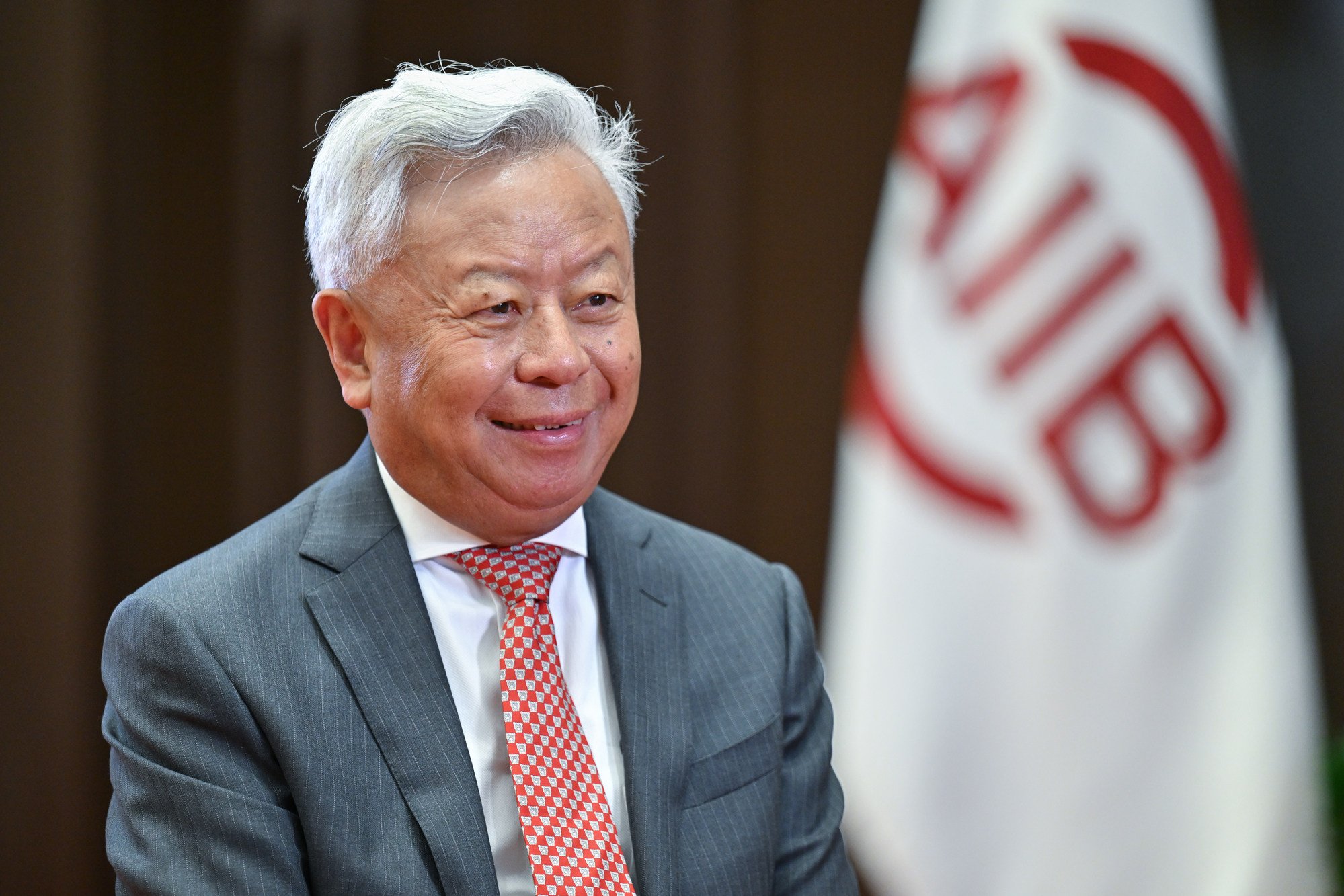After 10 years, AIIB welcomes new leadership – and fresh US challenges
Having survived Obama’s opposition, the development bank established by China will soon have a new president in a tricky Trumpian environment

Back to April 2016, at the Qingfeng steamed bun restaurant in Beijing’s bustling Xicheng district, Jin Liqun lunched with the Asia editor of the Financial Times to introduce himself and China’s newly created Asian Infrastructure Investment Bank (AIIB).
Beijing’s decision to establish a development bank reflected in part a deep frustration with the reluctance of the world’s leading economies to give China (and other leading developing economies) more influence in Bretton Woods institutions such as the International Monetary Fund and World Bank.
It also made clear a sharp difference in development priorities: the AIIB’s core task would not be to tackle poverty, but – as its name suggested – to improve infrastructure and devote its keenest attention to Asia.
“We’re not trying to upend the international financial and economic order, even though it leaves much room for improvement,” Jin insisted. “This is really an opportunity for China to show it can work with other countries and to [better] international practice – not just Western practice – so people can be convinced China is a force for peace and prosperity in the world.”
A decade later, as Jin prepares to step down as AIIB president and introduces his successor, Chinese finance ministry veteran Zou Jiayi, it may be timely to audit the bank’s progress and consider how its role might evolve over the next 10 years.
Many remain sceptical about China as a force for peace and prosperity, particularly in the affluent West. But as the AIIB’s membership has grown from 57 to 110 economies, the endorsement of its priority of infrastructure-building is broadly based across much of the developing world.

It boasts US$61 billion in financing for more than 320 projects across 38 countries and regions, spanning transport, energy, water, urbanisation, digital infrastructure and healthcare. It claims support for projects to build or upgrade 51,000km of roads and railways, improve irrigation for 22 million people, develop over 21 gigawatts of renewable energy and cut carbon dioxide emissions cut by 28.5 million tonnes in the energy sector.
Despite former US president Barack Obama’s concern that the AIIB would strive to undermine the Bretton Woods multilateral infrastructure (his administration strove in vain to stop allies like the UK, France, Australia and Germany becoming inaugural members), Jin collaborated closely with the World Bank and other development banks to optimise impact on infrastructure-building.
The US remains outside AIIB’s membership but it is noteworthy that the spleen of President Donald Trump and his administration is directed mainly at Brics’ New Development Bank (NDB), seen as a primary champion of “de-dollarising” the global economy.
Despite clear similarities between the AIIB and NDB – their principal shareholders are similar, and they share common cause in encouraging local-currency funding in international trade and finance – the AIIB has perhaps escaped Trump’s vitriol because of its specific insistence on staying out of politics. As Jin told the Financial Times in 2016, the AIIB “will not do anything that is driven by politics, and will not interfere in political affairs”.

Whether and how Zou can maintain an even keel after she takes over from Jin next January cannot be anticipated. In many ways, her background is strikingly similar to his. Both were born in Jiangsu – Jin in Changshu and Zou in Wuxi – and both careers were technocratically rooted in the finance ministry with continuous close involvement with the World Bank and other development banks. Both were finance vice-ministers.
But their differences are also clear. Born in 1963, 14 years later than Jin, Zou missed the worst disruption of Mao’s Cultural Revolution. Jin spent long periods working outside China – six years in Washington at the World Bank and six years at the Asian Development Bank. Zou held top-level roles focused on the World Bank and other development banks but mostly from within the finance ministry.
Unhandled type: inline-plus-widget {“type”:”inline-plus-widget”}
Perhaps the biggest difference of all is that Zou is a woman – a rarity at the top levels of government in Beijing. She is in good company in the global financial community, with Kristalina Georgieva heading the IMF, Christine Lagarde leading the European Central Bank and Dilma Rousseff helming the New Development Bank, but her heft back in Beijing may be less clear.
This might be an advantage. While Jin and Zou are both Communist Party members, as the head of a bank that purports to be rigorously multilateral (China has just 26.52 per cent of the voting share, boosted to 27.31 per cent if Hong Kong’s stake is included), some arm’s length distance from China’s core leadership can be no bad thing.
While Zou seems unlikely to seek sweeping changes at the AIIB, the radical shifts of the Trump administration suggest a tricky environment. The coming release of Trump’s “audit” of global multilateral institutions is likely to present a challenge.
While the US has no power to upset AIIB operations directly, Trump’s profound antipathy for multilateralism could deeply influence all organisations at the heart of multilateral cooperation.
As Jin suggested at the Fullerton Forum in Hong Kong in January, the AIIB is likely to continue to play an important role in battling the trends of “anti-globalisation, anti-free-trade and anti cross-border investment”. Zou is also likely to quietly continue with the challenge of “de-dollarising” global finance. She will maintain Jin’s efforts to project China as a force for peace and prosperity in the world but, given Trump’s attitude to multilateralism, that may be no easy task.